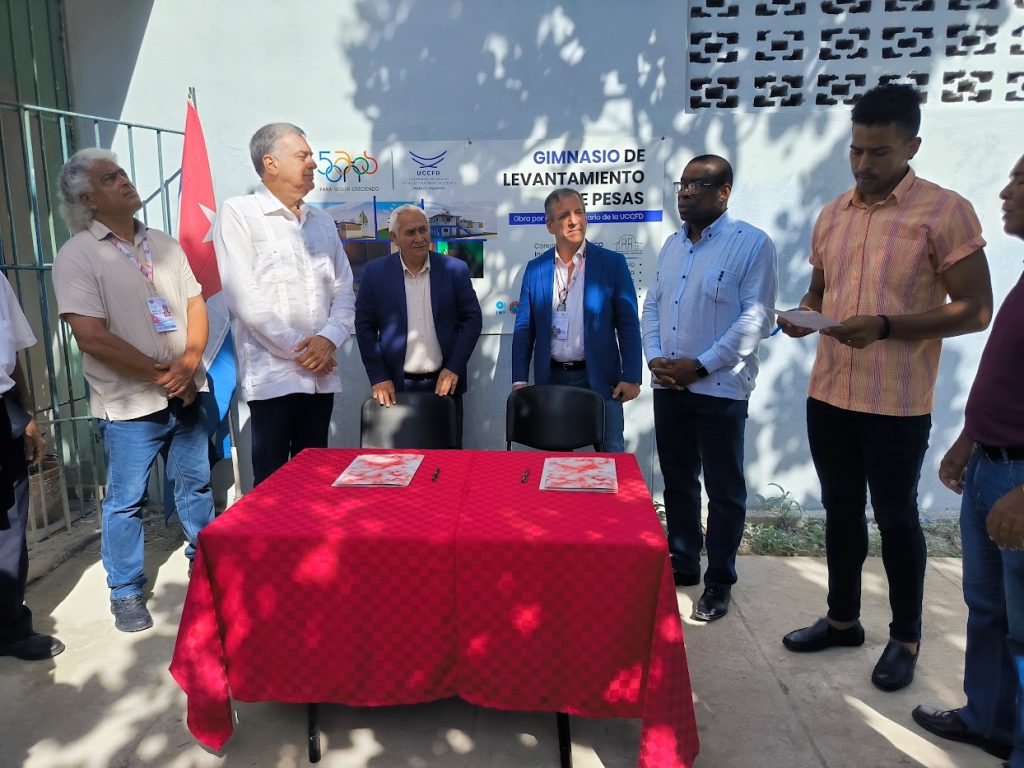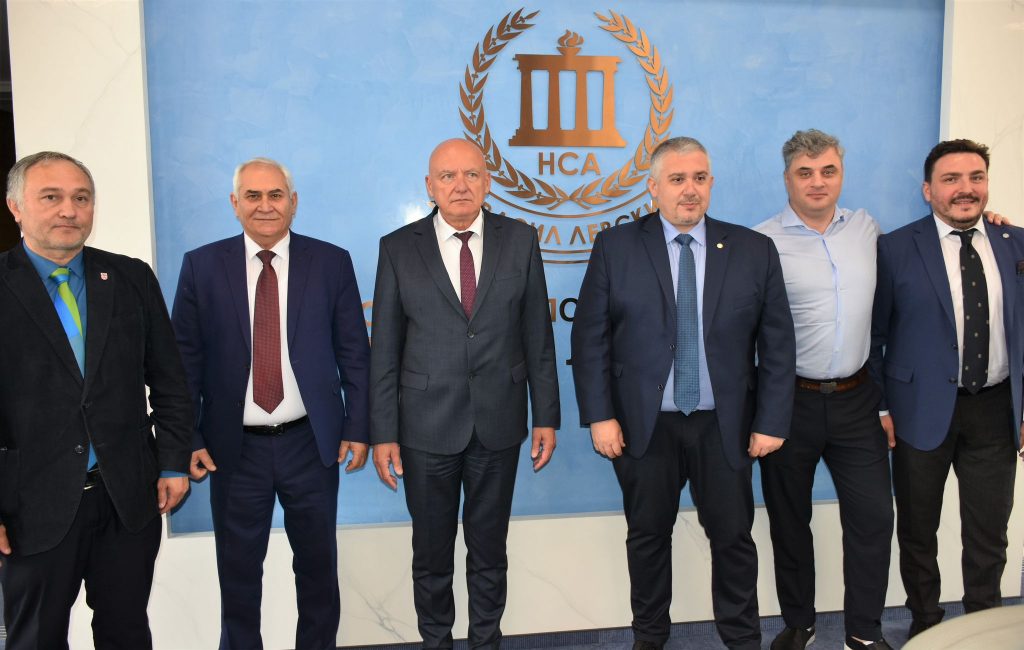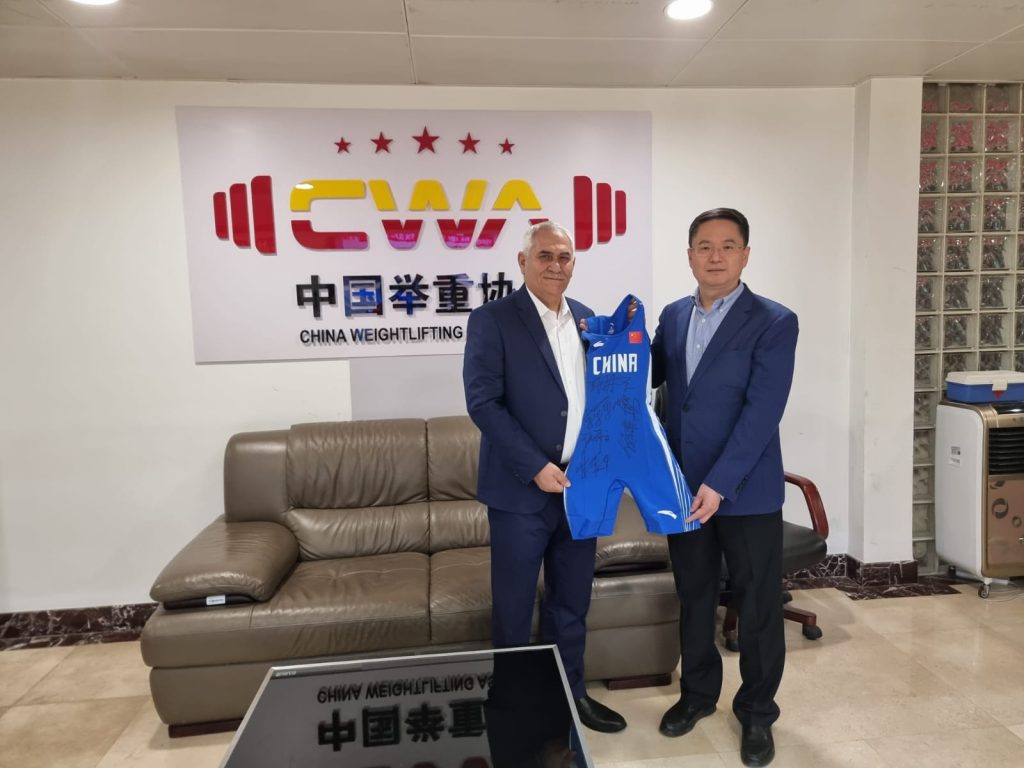IWF signs up with Cuban university as weightlifting academy plans take shape
Academies that can play a big role in changing the culture of weightlifting are springing up around the world.
Plans are well underway for teaching and training centres in Fuzhou, China and Sofia, Bulgaria, and today the IWF signed a deal with a specialist sport university in Havana, Cuba.
Tunisia could host a similar centre for Africa, and there are plans for one in Oceania too, possibly in Australia.
 The agreement ceremony at the Havana University
The agreement ceremony at the Havana University
The academies will be used for educating coaches, training athletes, holding specialist seminars and “all heading in one direction, towards science and away from doping”, said IWF president Mohammed Jalood before signing the Cuba agreement.
The aim is to have details finalised by September so an academies plan can be approved by the IWF Congress during the World Championships in Saudi Arabia.
“In our modern IWF we must be more scientific, we must change the culture of some coaches who believe only in doping,” said Jalood, who has also visited the other academy sites in China, Bulgaria and Tunisia.
“Athletes do not decide to dope on their own, they do it because their coach tells them to.
 IWF President Jalood (second from the left) during his recent visit to Bulgaria
IWF President Jalood (second from the left) during his recent visit to Bulgaria
“Starting next year we will have certificates for coaching, they will be educated at our academies and licensed by the IWF.”
The agreement with the Manuel Fajardo University of Science in Physical Culture and Sport, named after a Cuban revolutionary, was signed by Jalood, IWF general secretary Antonio Urso and university authorities in Havana today.
A new training centre will be open by November, and the university will host seminars and educational courses as well as being a centre for licensing coaches.
One of Latin America’s leading academics connected with weightlifting, Carlos Cuervo, will be heavily involved.
The Cuban professor made presentations to coaches and federation officials before the start of the IWF Grand Prix here in Havana, one of which sought to find a way to categorise in a universal way all movements taught by weightlifting coaches.
 IWF President Jalood at the Fuzhou University
IWF President Jalood at the Fuzhou University
“Universities are the key to changing society, and they can also be the key to the future of sport,” said Urso, who has written many academic papers and a book on the science of weightlifting.
Jose Quiñones, president of the Pan American Federation, highlighted the importance of agreeing on fundamentals so that all the academies teach the same principles, for example on training of children or educating coaches.
“We must all have similar goals, all be heading in the same direction,” he said.
To this end, the academy heads will meet in Saudi Arabia in September.
By Brian Oliver, Inside the Games










